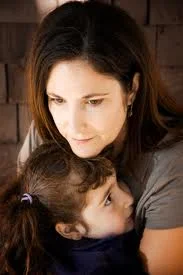Every day when I greet my children after school, I ask the age old question, “How was school?” and I get the age old response, “Good.” No more, no less. Real meaningful stuff. So when my daughter came home from school one day and burst into tears before I could get the words out, I wasn’t really prepared.
Instead of our normal emotionless exchange, she began to tell me how she got in trouble in school and how her teacher pulled her aside to let her know that some of the kids in her class were reporting that she was being unkind to them. And by unkind, I mean blatantly hurting their feelings repeatedly to the point that they went home and told their parents, who in turn called her teacher to share their concerns. Oh boy.
As she sat and cried, awaiting my words of disapproval, I interrupted her and told her how glad I was that she was crying. She gave me quite the look. I told her that I was so glad to see her upset because now I knew she was learning how awful it feels to hurt someone else and be called out on it. I told her how I have often tried to explain to her how important it is to notice how you are feeling when words come out of your mouth and when you know if you’ve made someone feel good or feel bad. I had said it a million times and she nodded her head a million more to quiet me down. But now, it was happening, she was learning from her mistakes. I was glad she was upset, relieved really. She had a conscience and she was experiencing natural consequences to her actions and words. The downside? Someone else had to get hurt for her to learn her lesson.
It turns out, my daughter’s filter is underdeveloped. She is a quick thinker and says what she is thinking while she is thinking it. A genetic trait it seems, and one I can greatly relate to, which I am sure I have modeled at times. I have spent hours with my children discussing how to speak with kindness, how to defend yourself when someone hurts your feelings and how to stick up for those who don’t stick up for themselves. I’ve role played and given multiple examples of various scenarios, but none of them featured holding back on saying what you are thinking until you can process the repercussions of your words.
After talking to her teacher and learning the extent of the other children’s hurt, I immediately wanted to call the other children’s parents, apologize for my daughter’s behavior and explain that she is indeed, a very kind and thoughtful child. I wanted to control how they viewed her and us, because we often consider our children a reflection of ourselves. Yet, I knew the ultimate goal was for my daughter to learn from her mistake on her own and it was her responsibility. If she was mature enough to inappropriately hurt other people and feel sorry about it, she was mature enough to respond appropriately in the clean up. I would walk her through it, but she would have to follow through and live with the repercussions.
It hurts to watch your child make mistakes and pay for them. And the greater the wounds, the higher the price and our accompanying pain. But I do believe it is important for them to figure it out with our support. And I really do feel that experience is the best education. I’ve always taught my children my belief that there is no such thing as a bad person, there is only bad behavior, so choose your behaviors wisely. (Except maybe mass murderers, they are pretty unimpressive.)
As an adult, I am still learning this lesson and anticipate it will not end. The more I learn, the better my choices will be, as a parent, spouse, friend and whatever other roles I play. The less I judge, the less I will feel judged. And the more open I can be to educating my own children through what I know to be true from my own experience, as I hold their hand when they walk through their own.
